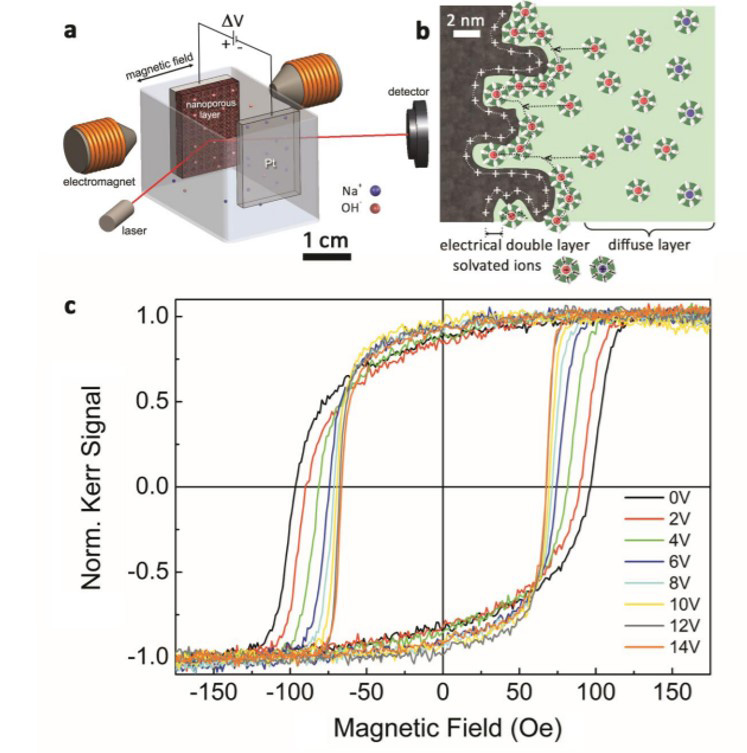In order to store information in the conventional magnetic memories of electronic devices, the materials’ small magnetic domains are oriented “up” or “down” by using externally applied magnetic fields. To generate these fields it is necessary to produce electric currents, but these currents heat up materials and a large amount of energy is lost by Joule heating effect. Practically, 40% of the electrical energy used by computers (or “Big Data” servers) is dissipated as heat.
Prof. Jordi Sort’s Research Team (http://jsort-icrea.uab.cat/) has recently developed a nanoporous material based on a copper-nickel alloy, with a structure similar to that of a sponge, which allows handling and storing magnetic information using very low amount of energy. These nanosponges could be the base of new magnetic memories for computers and mobile phones with enhanced energy efficiency compared to the ones currently in the market.
The results were recently published and featured in the Advanced Functional Materials journal. The attainment of very small pore sizes, of only 5 – 10 nanometres, together with the very high surface area, were crucial to reduce the energy power consumption. With this vast surface concentrated in a very small space, the Team could apply a small voltage and enormously reduce the energy needed to orient the magnetic domains and record data. This represents a new paradigm for energy saving in computers.
This research was funded by the ERC-Consolidator Grant received by Professor Jordi Sort for his project SPIN-PORICS (Merging nanoporous materials with energy-efficient spintronics), with a total funding of 1.8M€. To perform the magnetoelectric experiments, and also theoretical modelling, a collaboration was established with the ICN2 Group led by Prof. Josep Nogués.
Reference
